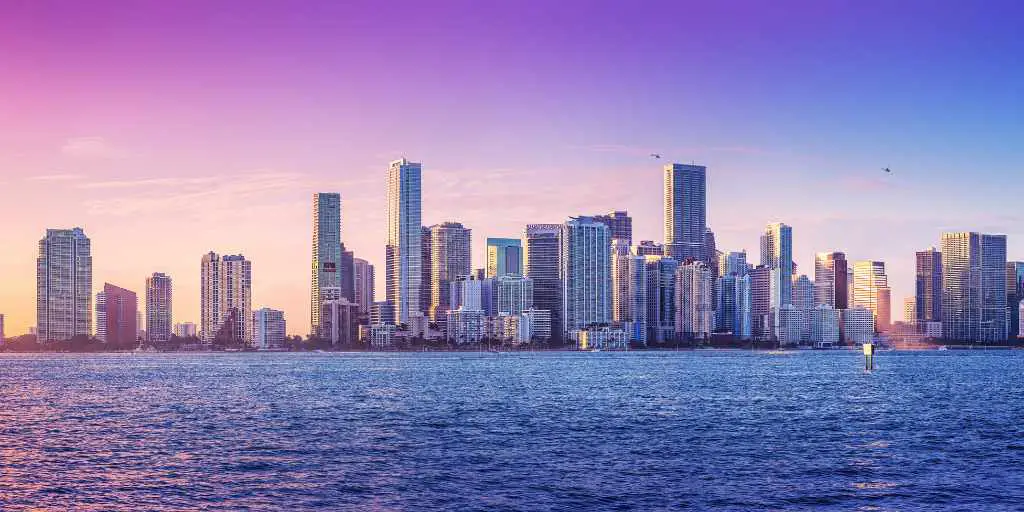If you like people and can work night shifts, bartending may be a fulfilling and lucrative career option. In Indiana, you need more than just a positive attitude; you’ll also need to meet state requirements, including completing a training program and obtaining a license.
What are the Bartending License Requirements for Indiana?
In the state of Indiana, you must obtain a bartender license from the Alcohol and Tobacco Commission (ATC) before you can legally serve alcohol. The following are the requirements for obtaining a bartender license in Indiana:
- Age requirement: You must be 21 to serve alcohol in Indiana.
- Proof of identity: You must provide a valid form of identification, such as a driver’s license or passport, to prove your identity and age.
- Background check: The ATC will conduct a background check to ensure that you do not have any prior convictions for crimes related to alcohol service, such as selling alcohol to minors.
- Alcohol Awareness Program: You must complete an Alcohol Awareness Program, which is a course that covers alcohol laws and regulations, responsible alcohol service, and the effects of alcohol on the body.
- Application and fee: You will need to complete an application and pay a fee to the ATC to obtain your bartender license. The fee is currently $25 and is valid for two years.
It’s important to note that these requirements may change over time, so it’s always a good idea to check with the ATC for the most up-to-date information.
Meet the Minimum Bartender Requirements
Before seeking a bartending job in Indiana, make sure to meet the state’s requirements. You must be at least 21 years old to serve drinks and 19 to work in an alcohol-serving establishment. Complete a training program approved by the Indiana State Alcohol and Tobacco Commission (ATC), and then apply for an employee permit through the ATC’s website.
Note: You must complete your training within 120 days of employment to be eligible for the license.
Minimum Age To Be A Bartender In Indiana
To obtain an ATC employee permit in Indiana, you must be 21. This permit allows you to serve alcohol as a bartender, waiter/waitress, manager, or clerk in a package liquor store.
However, individuals at least 19 years old and have completed an ATC-approved server training program may serve alcohol in a dining area or family room of a restaurant or hotel with appropriate supervision. For more information, visit the Restricted Server Guidelines webpage on the official website of the Indiana State Government.
Get an Indiana Bartender License
One of the key requirements for obtaining a bartending license is completing an alcohol server training course. These courses can be taken at ATC-approved training schools or through certified online vendors. The courses Indiana Off-Premises Alcohol Seller/Server and Indiana On-Premises Alcohol Seller/Server are short and cost-effective. They must be completed within 120 days of submitting your employee permit application.
After completing the training, fill out the employee permit form and submit it along with the required fee. If your application is approved, you will receive your permit within a few days, allowing you to work as a bartender anywhere in the state.
Restricted Permit Laws and Information
Indiana has two types of employee permits:
- Restricted Permit: for individuals who are 19 and 20 years old.
- Unrestricted Permit: for individuals who are 21 and up.
When a restricted employee turns 21, they must obtain an unrestricted permit to continue serving alcohol. The unrestricted permit is valid for three years and costs $45 for renewal or transfer.
The training is available through the Excise Police District in your area. You can find a list of scheduled server training programs (PDF) on their website, including online providers.
Notable Laws & Regulations For The “Restricted Employee”
The Restricted Permit puts several restrictions on what younger staff can do at their job:
- Must be supervised by a server who has completed state-certified training.
- Cannot act as a bartender or serve drinks in the bar area.
- Cannot mix drinks or pour from a tap, spigot, or pre-mixed beverages.
- Only allowed to serve in family areas of retail establishments.
- Can garnish drinks prepared by licensed bartenders and pour wine from a bottle at a customer’s table.
- They cannot serve in recreational areas such as a pool room, arcade room, or sports arena stands.
- Can serve in banquet rooms of hotels or restaurants but not over a bar or act as a bartender.
Unrestricted Permit Information: (for those 21 & up)
In Indiana, all who serve/sell alcohol must be certified, even over 21.
To apply for the unrestricted employee permit, visit mylicense.in.gov to register and complete the application process, which includes a free online training program.
A list of state-approved third-party training providers can be found here.
To obtain an employee permit, one must successfully complete a state-approved training program and complete the application process with the ATC.
Qualifications and Other Limitations
You must submit your out-of-state driving record if you have not resided in Indiana for the past decade. Additionally, any convictions for OWI or DUI in the past ten years could impact the outcome of your application.
Permit Renewals in Indiana
Unrestricted Permits need to be renewed every three years. The renewal process can be found on the Indiana Alcohol & Tobacco Commission Online Services page. Permits are eligible for renewal 90 days before their expiration date and can be renewed 120 days after the initial expiration.
A restricted Employee Permit is limited to a maximum of two years as Indiana mandates employees to upgrade to an Unrestricted Permit once they turn 21.
Practice Your Skills
Success in the bartending industry requires much more than a license. To excel, it is important to have a solid understanding of the different types of drinks, their ingredients, and the ability to create unique flavour combinations.
Moreover, familiarizing yourself with the terminology used in the industry, such as “on the rocks” or “neat,” can give you a competitive edge. Bars also have their unique language, like referring to the most premium drinks as “top-shelf.”
It is important to continuously experiment with new flavours and combinations to expand your knowledge of beverages. The more you know about what you are serving, the more successful you will be in the bartending industry.
Make Connections
As a bartender, you have the opportunity to interact with various individuals each day. Seize the chance to form connections with the right individuals who might provide better opportunities for your future career growth. Consider exchanging contact information with them, but always treat all customers equally and professionally. Avoid giving the impression that you are discriminatory, as it can harm your reputation and business.
Be open to exploring new opportunities and carefully weigh your options if you believe working at a different bar will benefit your career growth. Maintain a positive relationship with your current employer, as well as with others in the industry.
It is also crucial to pay attention to the performance of the business. Observe their customer traffic, financial status, and future plans, which will aid you in making informed decisions about whether it’s time to move on or to continue working at the same establishment.
How Much Money Do Bartenders Make in Indiana?
According to websites like Indeed and Intuit, the average base salary is $14.73 or $26,500 per year as of 2023, according to Intuit Mint’s data based on tax returns. Keep in mind that bartenders tend to make a lot of their income from tips, which can vary depending on where and when you’re working in Indiana.
Conclusion
In conclusion, obtaining a bartending license in Indiana is a crucial step towards a successful career in the industry. The state of Indiana requires all bartenders to hold a valid license, which can be obtained by completing a state-approved alcohol server training program and submitting the employee permit application with the Indiana Alcohol & Tobacco Commission. With the right training, knowledge of different drinks and their ingredients, and a professional attitude, you can make valuable connections, grow your career, and ultimately, succeed in the bartending industry. Keep in mind that obtaining a license is just the first step, but with dedication and hard work, the possibilities in this field are endless.
If you’re interested in bartending in other American states, we’ve written an article about bartending requirements across America here.




